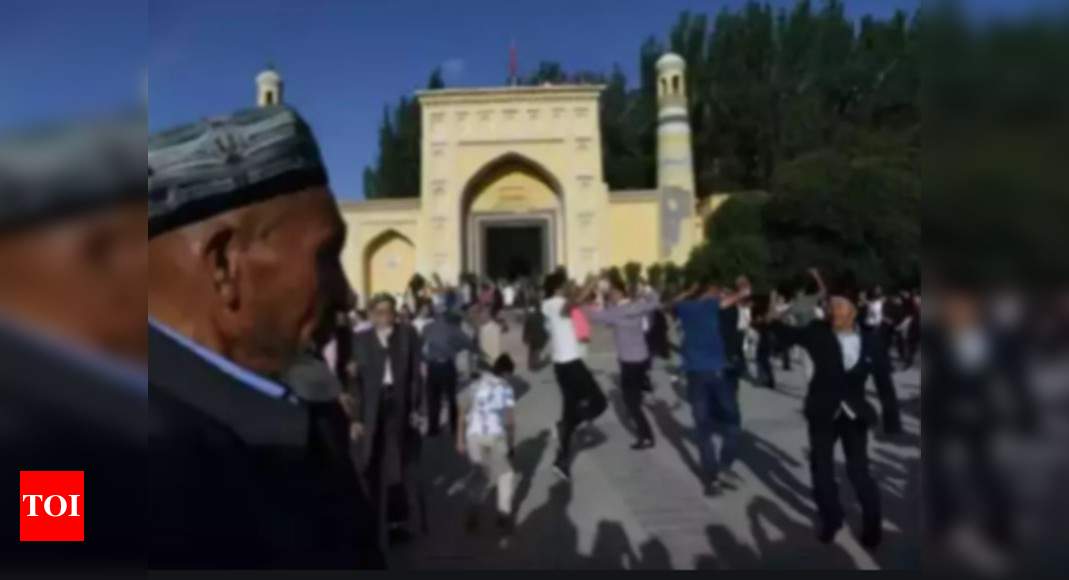European Parliament asks China to allow UN fact-finding team to visit Xinjiang Uyghur Autonomous region – Times of India
[ad_1]
“The situation in Xinjiang, where more than 10 million Muslim Uyghurs and Kazakhs live, has rapidly deteriorated, particularly since the launch of the Chinese Government‘s ‘Strike Hard against Violent Terrorism’ campaign in 2014″, said an EP resolution.
It added, “Uyghurs and other primarily Muslim ethnic minorities in the Xinjiang Uyghur Autonomous Region have been subjected to arbitrary detention, torture, egregious restrictions on religious practice and culture, and a digitalised surveillance system so pervasive that every aspect of daily life is monitored – through facial recognition cameras, mobile phone scans, the large-scale illegal collection, aggregation and processing of personal data”.
The resolution said there has been a general strengthening of the Chinese regime and a toughening of the treatment of minorities, in particular of Uyghurs, Tibetans and Mongolians, with the aim of assimilating them through the imposition of the Chinese majority lifestyle and communist ideology.
According to credible reports, more than one million people, are, or have been, detained in what are being called ‘political re-education’ centres, in the largest mass incarceration of an ethnic minority population in the world today.
The internment camp system in the Xinjiang Uyghur Autonomous Region is expanding, with more than 380 suspected detention facilities having been newly built or expanded since 2017, and at least 61 detention sites newly constructed or expanded between July 2019 and July 2020.
The European Parliament observed that the Chinese authorities are systematically subjecting Uyghur women of childbearing age to forced abortions, intrauterine injections and sterilisation, with 80 per cent of all new intrauterine device (IUD) placements in China in 2018 performed in the Uyghur region, despite the fact that it makes up only 1.8 percent of China’s population; whereas such measures to prevent births within the Uyghur population could meet the criteria for belonging to the worst crimes against humanity.
The European Parliament also raised concern over forced labour practice in Xinjiang which produces over 20 per cent of global cotton production.
The resolution said, “84 per cent of Chinese cotton comes from the Xinjiang Uyghur Autonomous Region, which means that the yarn, textiles and garments made with Chinese cotton are at extraordinarily high risk of being tainted with forced and prison labour, whether manufactured in China or anywhere else in the world”.
It added, “More than 80 international brand-name corporations have been reported to allegedly profit directly or indirectly from Uyghur forced labour in their supply chains; whereas the current context of oppression prevents independent investigations and audits from being conducted in the Uyghur region”.
The European Parliament requested China to allow a mission from the European Parliament to Xinjiang on the condition that it is given free and unrestricted access while guaranteeing confidentiality and safety for the local population.
It added, “The Chinese authorities to allow free, meaningful and unhindered access to Xinjiang province, and unrestricted access to the internment camps for journalists and international observers, including to EU officials, following President Xi Jinping’s invitation during the EU-China Summit of 14 September 2020, to the UN High Commissioner for Human Rights, the EU Special Representative for Human Rights and the mandate holders of the UN Human Rights Council Special Procedures”.
European Parliament also calls for the EU and the Member States to continue insisting on the establishment of a UN fact-finding mission to Xinjiang and the appointment of a Special Envoy.
[ad_2]
Source link


Comments are closed.